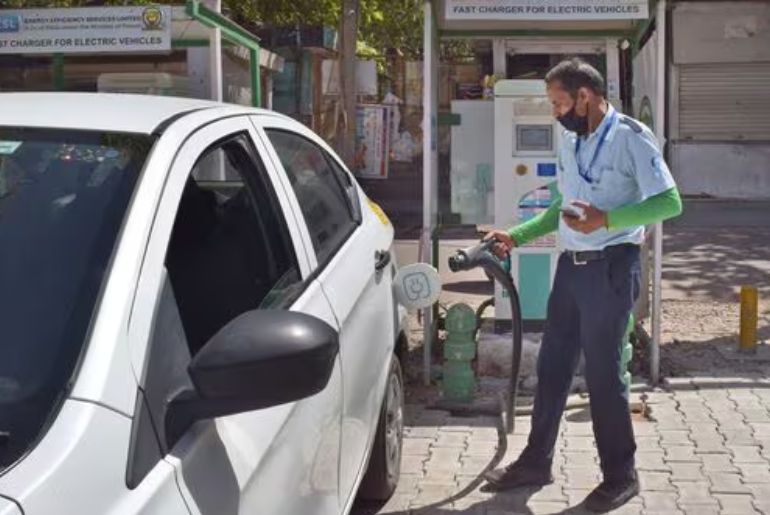In an attempt to boost the country’s electric vehicle ecosystem in line with the vision of Viksit Bharat, the Indian government has initiated the process of establishing a task force to create a roadmap for the industry. The Ministry of Heavy Industries (MHI) has sent a letter to the automakers to start the process. MHI will reportedly finalise the setup of this task force in collaboration with the Federation of Indian Chambers of Commerce and Industry (FICCI) and other agencies.
The letter reading that the EV task force has been set up to engage with stakeholders through workshops and stakeholder meetings to gather their insights and recommendations on various aspects of electric vehicle adoption and infrastructure development. The letter reportedly revealed that different agencies have been asked for their respective inputs on 11 topics to form an action plan for electric vehicle adoption in India. The agencies have already started work on laying the cornerstone to make the country a pioneer for electric mobility transition globally, further claimed the report. It quoted a person aware of the project saying, “The agencies involved with the foundation of the EV task force have already started approaching original equipment manufacturers (OEMs) to proceed on the project of an automotive vision plan for Viksit Bharat 2047.”
Electric vehicle sales in India have seen a robust growth of more than 45 per cent in 2024 so far. The number of total electric vehicle registrations in 2023 surpassed 15 lakh units, significantly higher than the previous year’s score of a little over 10 lakh units. All these have pushed the overall penetration of electric vehicles in India to 6.3 per cent as against 4.8 per cent registered in 2022. After the success of the FAME scheme, the government introduced a new scheme called the Electric Mobility Promotion Scheme (EMPS) 2024 with an outlay of ₹500 crore earlier this year in an attempt to boost EV adoption in the country. The formation of the task force comes as the next step in that vision.
In the task force, various agencies have been tasked with different sectors. The GIZ (Deutsche Gesellschaft fur Internationale Zusammenarbeit), a German government and European Union (EU) agency, and FICCI will focus on EV charging infrastructure, while the Retail Motor Industry Organisation (RMI) will concentrate on two- and three-wheelers, the report further stated,
The Indian Battery Swapping Association (IBSA) has been tasked with spearheading initiatives on electric vehicle battery swapping.
The International Council on Clean Transportation (ICCT) will handle matters related to electric trucks, and the World Bank (WB) will oversee the subject matter of electric buses. The WRI India (World Resources Institute)/FICCI has been assigned to look into electric four-wheelers, and the US Agency of International Development (USAID) will be responsible for power electronics, devices, and motors.
The India Energy Storage Alliance (IESA) has been assigned to oversee advanced chemistry cell (ACC) technologies. Primus Partners will explore the development of rare earth magnets, essential for electric motors. The Climate Trends will liaise with testing agencies to ensure compliance and standards, while The Energy and Resources Institute (TERI) is charged with skilling and workforce development to support the burgeoning EV sector.


